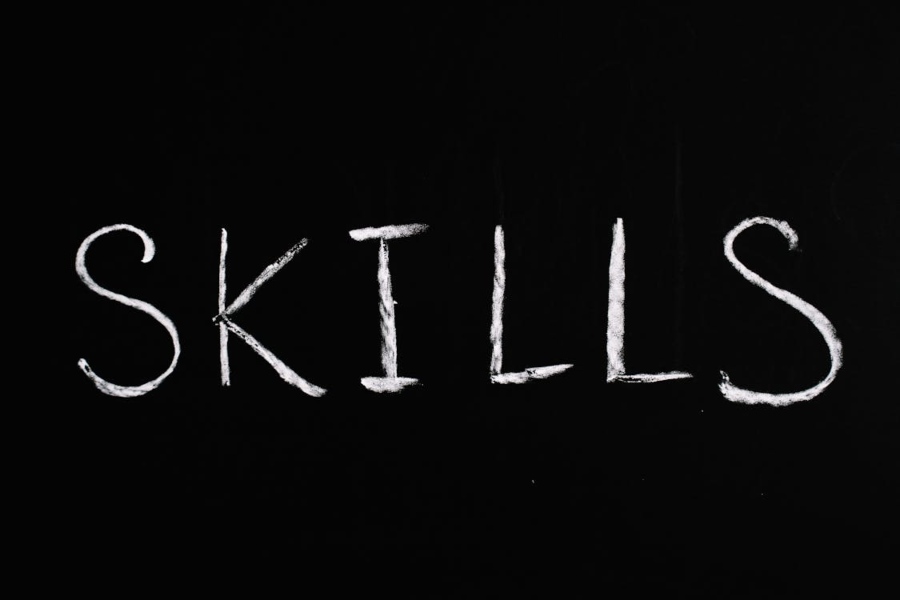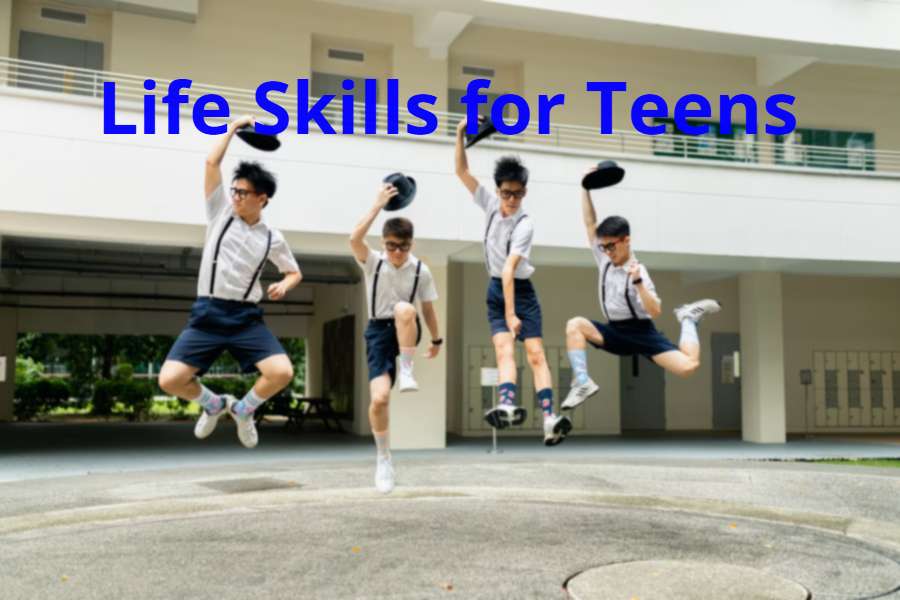Teenage years mark the transition from dependence to independence. Schools may prepare students academically, but the real test comes when young people step into adulthood and face responsibilities without constant guidance. Life skills bridge this gap. They are not just about surviving; they are about thriving.
Research shows that teens with strong life skills demonstrate better academic outcomes, healthier relationships, and higher levels of resilience. According to the World Health Organization, life skills education improves decision-making, communication, and stress management—all of which contribute to long-term well-being.
This article explores the essential life skills every teenager should develop. It goes beyond the basics, offering practical insights for parents, educators, and teens themselves.
Why Life Skills Matter for Teenagers
Teenagers often juggle school, friendships, extracurriculars, and the first taste of independence. Without essential skills, this juggling act can lead to stress, confusion, and setbacks. Mastering life skills brings several benefits:

- Confidence: Teens gain trust in their ability to handle challenges.
- Resilience: They bounce back faster from setbacks.
- Independence: Skills reduce reliance on parents for daily tasks.
- Preparedness: Teens face adult responsibilities with less anxiety.
The following sections highlight the most important life skills for teens, divided into practical, social, emotional, and cognitive categories.
Financial Literacy and Money Management
Money management is one of the most vital skills for teens. According to a 2023 National Financial Educators Council survey, 72% of teens admitted feeling unprepared to handle personal finances. Teaching financial literacy helps break this cycle.
Key Areas to Master
- Budgeting: Teens should learn to track income and expenses, even if their money only comes from allowances or part-time jobs.
- Saving: Understanding short-term and long-term savings goals builds a strong foundation for adulthood.
- Banking Basics: Opening and managing a checking or savings account teaches responsibility.
- Credit Awareness: Teens should learn the basics of credit scores, interest, and debt before facing student loans or credit cards.
How to Practice
Parents can involve teens in grocery budgeting, online banking tasks, or comparing prices during shopping trips. Apps like Mint or YNAB can make budgeting engaging.
Cooking and Nutrition
Food is a daily need, and yet many young adults step into college without knowing how to cook a healthy meal. Cooking is not only a survival skill but also a confidence booster.
Core Skills to Teach
- Meal Planning: Teens should understand how to prepare balanced meals within a budget.
- Basic Recipes: Knowing how to cook pasta, rice, eggs, vegetables, and simple proteins is a good start.
- Nutrition Awareness: Recognizing food labels and portion sizes helps prevent unhealthy habits.
- Kitchen Safety: Skills like knife handling and proper food storage prevent accidents and foodborne illness.
Cooking together as a family doubles as a bonding experience and a life lesson.
Job Readiness and Career Skills
Landing a first job is a milestone. Beyond earning money, job readiness builds responsibility and professionalism.
Skills for Employment
- Resume Writing: Teens should know how to highlight skills and experiences effectively.
- Interview Preparation: Role-playing interviews builds confidence.
- Workplace Etiquette: Punctuality, teamwork, and communication matter as much as job tasks.
- Time Management: Balancing work with school and personal life teaches discipline.
Internships, summer jobs, and volunteer work provide real-world practice.
Time Management
Time feels abundant to teenagers, but poor management often leads to stress. A 2022 American Psychological Association survey found that teens report stress levels higher than adults during the school year. Much of this comes from poor time balance.
Practical Strategies
- Prioritization: Teach teens to list tasks by urgency and importance.
- Scheduling: Using planners or digital apps keeps deadlines visible.
- Break Management: Incorporating short breaks increases focus and productivity.
- Avoiding Procrastination: Breaking tasks into smaller steps reduces overwhelm.
Practicing effective time management prepares teens for academic success and future careers.
Communication and Interpersonal Skills
Healthy communication forms the backbone of personal and professional success. Poor communication often leads to misunderstandings, conflict, and strained relationships.
Core Skills
- Active Listening: Teens should learn to listen without interrupting.
- Clear Expression: Speaking with confidence and respect builds stronger relationships.
- Nonverbal Cues: Body language, eye contact, and tone are just as important as words.
- Digital Etiquette: In an era of texts and social media, teens should learn when to switch from digital to face-to-face communication.
Practicing presentations, group discussions, or debates in school helps refine these skills.
Emotional Regulation and Stress Management
Teenagers face enormous pressure—academic, social, and personal. Emotional regulation helps them handle stress without breaking down.
Skills to Develop
- Mindfulness and Breathing Techniques: Reduce anxiety and improve focus.
- Recognizing Triggers: Identifying stress sources helps avoid escalation.
- Healthy Outlets: Exercise, journaling, or creative hobbies relieve tension.
- Asking for Help: Knowing when and how to seek support strengthens resilience.
Studies show mindfulness programs in schools lower teen stress and improve attention spans.
Decision-Making and Problem-Solving
Independence requires strong decision-making skills. Teens who practice decision-making early develop confidence in their judgment.
Steps to Teach
- Identify the problem.
- List possible solutions.
- Evaluate risks and benefits.
- Choose and act.
- Reflect on outcomes.
Encouraging teens to decide on family activities or manage their schedules gives them practice in low-stakes environments.
Self-Care and Personal Responsibility
Self-care extends beyond spa days. For teens, it means maintaining hygiene, sleep routines, and health habits.
Basics of Self-Care
- Hygiene: Bathing, grooming, and dental care are non-negotiable.
- Sleep Hygiene: The CDC recommends 8–10 hours for teens, yet most fall short.
- Exercise: Regular movement improves physical and mental health.
- Healthcare Navigation: Teens should know how to book appointments, fill prescriptions, and communicate with doctors.
Building self-care routines early fosters independence.
Household Management Skills
Living independently means keeping a home functional and safe.
Skills to Learn
- Cleaning: Basic chores like sweeping, dishes, and laundry.
- Organization: Decluttering reduces stress and increases productivity.
- Basic Repairs: Knowing how to change a lightbulb, unclog a sink, or reset a breaker.
- Safety Awareness: Understanding fire safety, emergency contacts, and first aid.
Assigning chores and rotating responsibilities at home gives teens steady practice.
Digital and Screen Management
With technology dominating modern life, screen management becomes essential. The American Academy of Pediatrics recommends limiting recreational screen time to 2 hours daily, but teens average far more.
Key Strategies
- Setting Boundaries: No screens during meals or bedtime.
- Cyber Safety: Protecting passwords and understanding online risks.
- Healthy Use: Balancing educational and recreational screen time.
- Social Media Awareness: Recognizing the impact of online comparisons on mental health.
Digital literacy is as critical as reading and writing in today’s world.
Relationship and Social Skills
Strong relationships improve mental health and resilience. Teens who develop healthy social skills are more likely to succeed personally and professionally.

Social Skills to Practice
- Empathy: Understanding others’ feelings builds trust.
- Conflict Resolution: Listening, compromising, and finding middle ground.
- Teamwork: Collaborating with peers strengthens leadership abilities.
- Boundaries: Respecting others’ space while protecting personal limits.
School group projects, sports teams, and volunteer work offer opportunities to grow these skills.
Resilience and Adaptability
Change is inevitable. Teens who adapt quickly and remain resilient are better prepared for adult challenges.
How to Build Resilience
- Reframing Failures: Viewing setbacks as learning opportunities.
- Staying Flexible: Adjusting plans without losing focus.
- Positive Mindset: Practicing gratitude and optimism.
- Support Systems: Maintaining strong family and peer connections.
Resilience training programs in schools have shown improvements in student confidence and problem-solving.
Goal-Setting and Self-Awareness
Teens often dream big, but dreams need structure. Goal-setting translates vision into action.
Practical Approach
- SMART Goals: Specific, Measurable, Achievable, Relevant, Time-bound.
- Reflection: Evaluating progress regularly.
- Celebrating Successes: Recognizing milestones builds motivation.
- Self-Awareness: Understanding personal strengths and weaknesses.
Goal-setting prepares teens for college, careers, and personal growth.
Global Citizenship and Community Engagement
Today’s world is interconnected. Teens benefit from understanding cultural diversity and global issues.
Ways to Build Awareness
- Community Service: Volunteering teaches empathy and responsibility.
- Cultural Exposure: Reading, traveling, or engaging with diverse communities.
- Sustainability Practices: Recycling, conserving resources, and eco-friendly habits.
- Civic Participation: Understanding voting, laws, and local government.
Global citizenship builds compassionate, responsible adults.
Conclusion
Life skills are not optional extras. They are the foundation of independence, resilience, and success. Teens who master these skills step into adulthood with confidence, ready to navigate challenges and opportunities alike.
Parents, teachers, and communities play a central role in helping teens build these abilities. Through consistent practice, encouragement, and real-world application, life skills become second nature.
By prioritizing financial literacy, communication, self-care, decision-making, and global citizenship, we equip teens not just to survive adulthood but to thrive in it.

